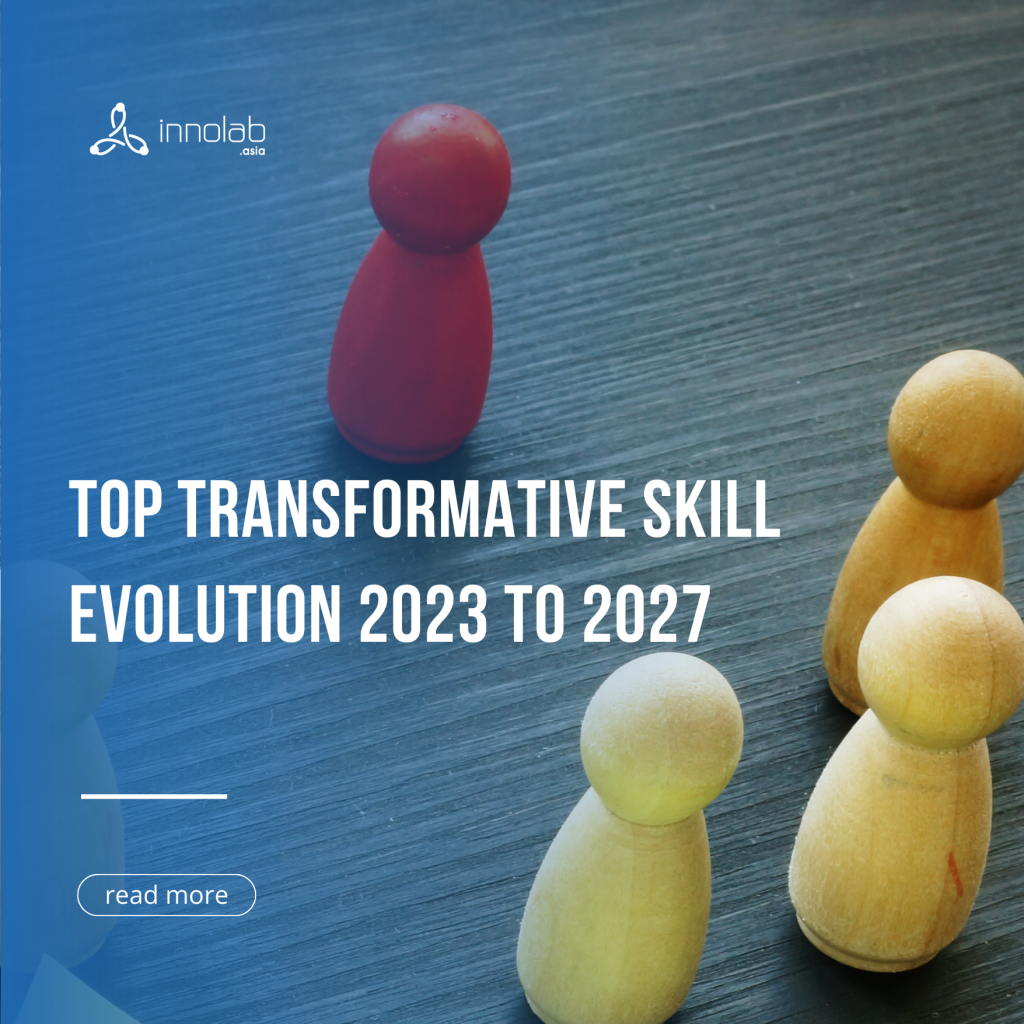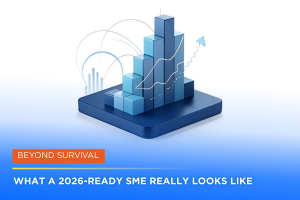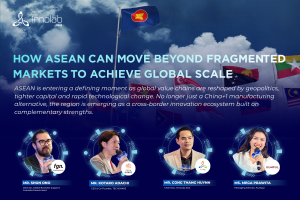Explore the transformative journey of abilities in our new-age digital landscape from 2023 to 2027. This piece unravels the dynamic evolution of skills during these pivotal years, diving deep into the interplay between emerging technologies and the adapting human potential. We will journey through these transformative years, tracing the innovative changes in proficiency demand and acquisition, as we navigate an era of rapid digital and technological advancement.
Creative Thinking
In an age where artificial intelligence (AI) and automation are permeating almost every sector, creative thinking has become an indispensable tool in the human skillset. Despite the rapid advancements in technology, machines still lack the human touch of originality, the ability to think outside the box and devise innovative solutions. From 2023 to 2027, we foresee an increasing emphasis on creative thinking. According to a report by the World Economic Forum, surveyed businesses report creativity is the first-fastest growing core skill.[1] This pivotal change is a response to the high demand from employers for graduates who possess robust creative thinking abilities, enabling them to tackle unprecedented challenges and drive innovation. The forecast for 2027 further substantiates this upward trend, emphasizing the indispensability of creative thinking in the digital era.
Source: World Economic Forum, Future of Jobs Survey 2023.
In the year 2023, we are on the verge of technological progressions, like Artificial Intelligence (AI) and mechanization, which are expected to mold the development of imaginative reasoning in the forthcoming years. By mechanizing repetitive duties, AI liberates human potential for more cutting-edge and inventive pursuits. However, it is important to comprehend that imaginative reasoning will not solely hold value in traditional fields such as the arts and marketing, but also in sectors like healthcare, engineering, and finance.
In the next four years, a transformation in educational models and corporate training programs can be predicted to nurture and refine imaginative reasoning abilities. Consequently, educational institutions are likely to incorporate more problem-solving and imaginative reasoning modules into their curriculums. Corporate training programs will also advance to encompass workshops and training sessions that cultivate creative problem-solving abilities, as these will be paramount for employees to adjust to the constantly evolving landscape shaped by technological progressions.
With the global economy evolving at an unprecedented pace, businesses require creative minds that can envision and actualize novel ideas to stay competitive. From designing unconventional marketing campaigns to developing innovative products, creative thinking fosters ingenuity and originality, thus playing a critical role in driving economic growth.
Analytical Thinking
In this era of big data, analytical thinking has become a skill of prime importance. Analytical thinkers can dissect complex problems, interpret data, and derive meaningful insights, enabling data-driven decision-making. As the digital revolution unfolds, the demand for analytical thinking is projected to grow exponentially between 2023 and 2027.
According to a latest report by LinkedIn in 2023, analytical thinking ranked among the top 10th skills companies need most skills right now and and also appeared in the top 10th most in-demand skills by function.[2] With the volume of data generated expected to reach 181 zettabytes by 2025, there will be an increased need for professionals adept at data analysis and interpretation, signaling a steady increase in the importance of analytical thinking. The highest priority for skills training from 2023 to 2027 is analytical thinking, which is set to account for 10% of training initiatives, on average.
Source: World Economic Forum, Future of Jobs Survey 2023.
As per a report issued by the World Economic Forum, the demand for jobs necessitating analytical expertise is predicted to witness a 32% surge between 2023 and 2027.[1] This development can be attributed to the global shift towards making data-driven decisions across various industries. Businesses are increasingly relying on intricate datasets to guide their strategies, thereby requiring employees who are capable of comprehending and implementing insights derived from this information. These trends indicate a corresponding increase in the requirement for analytical thinkers who possess a discerning eye and possess the ability to extract actionable intelligence from diverse data sources.
However, it is not just the sheer demand for these proficiencies that is undergoing a transformation. The nature of analytical thinking itself is evolving, influenced by the tools and technologies that are currently at our disposal. For instance, artificial intelligence and machine learning have the potential to automate certain aspects of analytical tasks. Nevertheless, according to a study conducted by the McKinsey Global Institute, while approximately 50% of current job activities can technically be automated by employing existing technologies, a mere 5% of occupations are completely automatable.[3] This clearly indicates the need for a human element – the nuanced analytical thinking that cannot be replicated by AI – leading to the emergence of a novel hybrid analytical skill set where humans and machines collaborate symbiotically. In this landscape, analytical thinking is transforming into a more intricate form, demanding not only proficiency in data interpretation but also a deep understanding of the capacities and limitations of AI.
Technological Literacy
As we continue through the remarkable landscape of the 2020s, the years 2023-2027 stand as an important stage of skills development. The pandemic-induced shift towards remote work highlighted the necessity of basic tech skills, with 85% of the jobs in 2030 expected to require ICT (Information and Communication Technology) skills.[4] Furthermore, this era is marked by rapid technological advances, which redefine the landscape of industries. From artificial intelligence to virtual reality, emerging tools are literally changing the core of the workforce. The result is a dramatic shift in the skills required by employers, and employees with a deep understanding of these technologies will be at an advantage. The figures from the Future of Jobs Survey 2023 indicates the proportion of organizations across the top seven industries which consider Technology skills category to be growing in importance for their workers from 2023 to 2027, as opposed to having stable or declining importance.
Source: World Economic Forum, Future of Jobs Survey 2023.
In 2023, there has been a remarkable transformation in the understanding of technology, brought about by the rapid growth of emerging technologies. The proficiency in this area is no longer limited to basic skills in using information and communication technology (ICT), but now necessitates a comprehension of advanced technologies like artificial intelligence, machine learning, robotics, and cloud computing. The World Economic Forum (WEF) predicts that by 2025, more than half of all employees will need to undergo significant retraining and further development, primarily in technological literacy, as it becomes an integral aspect of almost every job role.[5]
Moreover, the concept of technological literacy has expanded to encompass a more interdisciplinary approach, emphasizing the importance for professionals to not only grasp the practical applications of these technologies but also to understand their implications for business strategies, data privacy, ethics, and social interaction. According to data from the Department for Education of the UK, computer science course enrollments have increased by nearly 50% from 20,420 in 2011 to 30,090 in 2020. Similarly, the number of students enrolling in engineering courses has risen by 21% from 25,995 in 2011 to 31,545 in 2020.[6] These trends reflect the market’s demand for individuals with integrated skills and highlight its proactive efforts to develop a future-ready workforce.
The focus of technological literacy is expected to shift towards more nuanced areas such as quantum computing, autonomous systems, and the internet of things by 2027. This shift will require individuals to move beyond simply “knowing” these technologies to being adaptable in their application. Thus, organizations are planning significant investments in advanced technologies and fostering a culture of continuous learning to promote adaptation to technological evolution. These endeavors emphasize the crucial role of lifelong learning in keeping pace with the relentless advancements in technology and highlight the future trajectory of technological literacy towards adaptability.
Curiosity and Lifelong Learning
As the adage goes, “the more you learn, the more you realize how little you know.” Curiosity and lifelong learning are timeless skills, but their importance is set to escalate between 2023 and 2027. Rapid technological advancements demand constant learning and adaptation. The reason upskilling is getting so much buzz is because “the skills required in the workforce are changing fast. Jobs are changing on you, even if you’re not changing jobs”, says Linda Cai, vice-president of talent development at LinkedIn. “Recent LinkedIn data shows skillsets for jobs have changed by around 25% since 2015. By 2027, this number is expected to double.” Thus, inculcating a habit of curiosity and lifelong learning is more crucial than ever before.[7] In addition, World Economic Forum ‘s report also provides a list of skills that should be focused on reskill and included in reskilling strategies for your reference.
Source: World Economic Forum, Future of Jobs Survey 2023.
According to a World Economic Forum report, 50% of the total workforce will need to be reskilled by 2025.[5] Rapid technological advances have dramatically reduced skill lifespans By 2023, it is projected that foster a culture of continuous learning. Employers are increasingly investing in learning and development (L&D) programs, and there has been growth in the use of massive open online courses (MOOCs).
Going into 2027, the business environment is going to be an even more complex ecosystem with new technologies such as quantum computing and advances in artificial intelligence and robotics In 2023, the skills that were relevant has evolved and curiosity has become a key characteristic of its success. This is an age where a fixed mindset is a liability and flexibility through constant learning is an asset. Individuals must now actively seek cross-cultural knowledge and challenge the status quo to remain relevant. Hence, the connecting years amidst 2023 and 2027 observe a crucial alteration where inquisitiveness and lifelong acquisition are not merely extras but indispensabilities for both personal and corporate triumph. The emphasis lies in fostering intellectual adaptability, and the capability to discard and acquire knowledge anew. Authorities, educational establishments, and enterprises are collectively striving on an immense magnitude to enable this atmosphere. Learning environments driven by curiosity are being formulated which are not solely restricted to career progression but encompass a broader outlook on education, highlighting inventiveness, finding solutions, and cooperation as fundamental elements for a flexible and enduring workforce.
Resilience, Flexibility and Agility
Resilience has always been a coveted skill, but its importance has grown exponentially. Particularly after the global pandemic of 2020 and 2021, it has become evident that individuals and organizations that can endure and adapt to adverse circumstances are those that thrive. A study by Deloitte in 2021 found that organizations that prioritized resilience were twice as likely to outperform their competitors in revenue growth.[8] This underscores the importance of resilience in the face of adversity. In light of ongoing changes in technology, regulations, and corporate environments, workers who exhibit resilience – individuals who bounce back from setbacks, adjust effectively to changes, and persist in the face of challenges – are currently more essential than at any other time.
Flexibility, meanwhile, has also seen a surge in demand. As our world becomes increasingly digital and interconnected, the ability to adapt to changing circumstances and to learn new skills has become essential. The World Economic Forum’s Future of Jobs Report (2023) projected that 65.8% of organizations surveyed consider skills to be increasing in importance, with the majority of these skills being in the realm of digital technology.[1] This statistic makes it evident that flexibility, especially in the ability to learn new skills, is an absolute must. Workers are presently obligated to adjust their modes of communication, methods of collaboration, and even their working hours to more effectively cater to the demands of geographically dispersed teams.
Finally, agility, often viewed in the context of agile methodologies in the tech sector, has now permeated almost all aspects of business and personal growth. Agility has become synonymous with the capacity to act swiftly and effectively in a rapidly changing environment. In their 2020 report, McKinsey & Company noted that agile business units had outperformed their non-agile counterparts in the same organization by an average of approximately 87% in overall performance ratings, providing a clear indicator of the advantage of this skill set.[9] With the rise of AI, machine learning, and intricate decision-making procedures, it becomes essential to foster adaptability in thinking and behavior. As we move forward into the year 2027, adaptability continues to be a crucial ability for succeeding in the ever-changing, swiftly evolving digital setting that defines our contemporary places of work.
Source: McKinsey & Company
As we gaze into the future, it becomes increasingly clear that these abilities – tenacity, adaptability, and nimbleness – will be the determining factor between achievement and stagnation. It is these skills that will empower individuals and organizations to overcome challenges, adjust to new standards, and not just survive, but thrive amidst the constant flow of change. They will set apart those who endure the uncertainties of the future from those who ride its waves to unprecedented levels of accomplishment and originality. Therefore, these crucial skills play a defining role in shaping the competitive environment of the future, offering a vital advantage in a swiftly evolving world.
Conclusion: The Imperative of Skill Evolution
In conclusion, the progression of the employment market asserts that workers must not be indifferent towards their skill set. Abilities such as imaginative thinking, logical thinking, technological literacy, inquisitiveness paired with continuous learning, and adaptability, flexibility, and quickness are not only desirable traits but vital requirements for the coming times. With the surge of digitalization, employers are increasingly in search of employees who can effortlessly navigate this ever-changing landscape with innovation. Employees must ensure their skills remain in line with the evolving demands of the job market, or they risk becoming outdated. Additionally, keeping these skills up to date is not merely about retaining a job; they also unlock fresh opportunities, enhance job performance, and contribute to career advancement. By consistently dedicating yourself to learning and adjusting, you will not only become indispensable to your current employer but also more appealing to potential future employers. In this age of digital transformation and perpetual change, there is a growing need for these five skills. Be proactive, embrace continuous learning, and ensure you are not left behind. The future of work is already here, and it is crucial to prepare today for the demands of tomorrow.
References
World Economic Forum. (2023). “The Future of Jobs Report 2023”. Retrieved from https://www3.weforum.org/docs/WEF_Future_of_Jobs_2023.pdf
LinkedIn. (2023). “2023 Workplace Learning Report: Building the agile future”. Retrieved from https://learning.linkedin.com/content/dam/me/learning/en-us/pdfs/workplace-learning-report/LinkedIn-Learning_Workplace-Learning-Report-2023-EN.pdf
McKinsey Global Institute. (2017). “A future that works: Automation, employment, and productivity”. Retrieved from https://www.mckinsey.com/~/media/mckinsey/featured%20insights/digital%20disruption/harnessing%20automation%20for%20a%20future%20that%20works/mgi-a-future-that-works_full-report.pdf
Dell Technologies. (2018). “85% of Jobs that will exist in 2030 haven’t been invented yet”. Retrieved from
https://www.linkedin.com/pulse/85-jobs-exist-2030-havent-been-invented-yet-leo-salemi
World Economic Forum. (2020). “The Future of Jobs Report 2020”. Retrieved from https://www3.weforum.org/docs/WEF_Future_of_Jobs_2020.pdf
The Education Hub. (2021). “More young people are taking STEM subjects than ever before”. Retrieved from https://educationhub.blog.gov.uk/2021/02/09/more-young-people-are-taking-stem-subjects-than-ever-before/
BBC. (2022). “What ‘upskilling’ means for the future of work”. Retrieved from https://www.bbc.com/worklife/article/20220412-what-upskilling-means-for-the-future-of-work
Deloitte. (2020). “The heart of resilient leadership: Responding to COVID-19”. Retrieved from https://www2.deloitte.com/us/en/insights/economy/covid-19/heart-of-resilient-leadership-responding-to-covid-19.html
McKinsey & Company. (2020). “An operating model for the next normal: Lessons from agile organizations in the crisis”. Retrieved from https://www.mckinsey.com/~/media/mckinsey/business%20functions/organization/our%20insights/an%20operating%20model%20for%20the%20next%20normal%20lessons%20from%20agile%20organizations%20in%20the%20crisis/an-operating-model-for-the-next-normal-lessons-from-agile-organizations-in-the-crisis.pdf
IDC. (2018). “Data Age 2025”. Retrieved from https://www.seagate.com/files/www-content/our-story/trends/files/idc-seagate-dataage-whitepaper.pdf
World Government Summit. (2023). “The Skills Revolution and the Future of Learning and Earning”. Retrieved from https://www.worldgovernmentsummit.org/docs/default-source/publication/2023/20230209-2100-wgs_educationreport.pdf
McKinsey & Company. (2017). “Jobs lost, jobs gained: What the future of work will mean for jobs, skills, and wages”. Retrieved from https://www.mckinsey.com/featured-insights/future-of-work/jobs-lost-jobs-gained-what-the-future-of-work-will-mean-for-jobs-skills-and-wages



